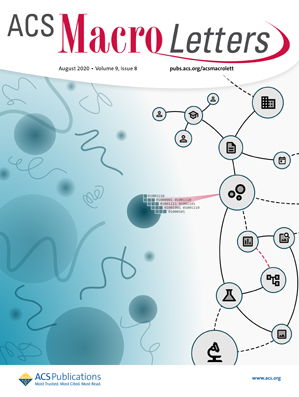GSH-Responsive GalNAc-Conjugated Glycopolymer for Targeted Survivin siRNA Delivery in Hepatocellular Carcinoma Therapy
IF 5.2
Q1 POLYMER SCIENCE
引用次数: 0
Abstract
Gene interference therapy has made significant progress in the treatment of various diseases by targeting specific pathogenic genes and down-regulating the production of harmful proteins. This approach enables the precise modulation of gene expression, offering potential therapeutic benefits for conditions driven by genetic mutations or abnormal protein accumulation. Survivin, an apoptosis-inhibiting protein, plays a critical role in regulating tumor cell proliferation and preventing programmed cell death. Its overexpression in liver cancer cells is strongly associated with poor prognosis and accelerated tumor progression. RNA interference (RNAi) therapy can effectively suppress the expression of Survivin in liver cancer, inhibiting tumor cell proliferation and promoting apoptosis. In this study, four distinct GalNAc-conjugated glycopolymer siRNA delivery systems were developed. By leveraging the efficient liver-targeting capability of the GalNAc moiety, Survivin-siRNA was specifically delivered to liver cancer cells through either covalent coupling or electrostatic adsorption. In vitro experiments demonstrated the excellent gene silencing effect of these siRNA complexes, highlighting their potential as a promising therapeutic strategy for liver cancer.

肝细胞癌治疗中靶向Survivin siRNA递送的gsh反应性galnac共轭糖共聚物
基因干扰疗法通过靶向特定致病基因和下调有害蛋白质的产生,在治疗各种疾病方面取得了重大进展。这种方法可以精确调节基因表达,为基因突变或蛋白质异常积累导致的疾病提供潜在的治疗益处。Survivin 是一种抑制细胞凋亡的蛋白质,在调节肿瘤细胞增殖和防止细胞程序性死亡方面发挥着关键作用。它在肝癌细胞中的过度表达与预后不良和肿瘤进展加速密切相关。RNA 干扰(RNAi)疗法能有效抑制 Survivin 在肝癌中的表达,抑制肿瘤细胞增殖并促进细胞凋亡。本研究开发了四种不同的GalNAc共轭糖聚合物siRNA递送系统。利用 GalNAc 分子高效的肝脏靶向能力,Survivin-siRNA 通过共价偶联或静电吸附的方式被特异性地传递到肝癌细胞中。体外实验证明,这些 siRNA 复合物具有出色的基因沉默效果,凸显了其作为肝癌治疗策略的潜力。
本文章由计算机程序翻译,如有差异,请以英文原文为准。
求助全文
约1分钟内获得全文
求助全文
来源期刊
CiteScore
10.40
自引率
3.40%
发文量
209
审稿时长
1 months
期刊介绍:
ACS Macro Letters publishes research in all areas of contemporary soft matter science in which macromolecules play a key role, including nanotechnology, self-assembly, supramolecular chemistry, biomaterials, energy generation and storage, and renewable/sustainable materials. Submissions to ACS Macro Letters should justify clearly the rapid disclosure of the key elements of the study. The scope of the journal includes high-impact research of broad interest in all areas of polymer science and engineering, including cross-disciplinary research that interfaces with polymer science.
With the launch of ACS Macro Letters, all Communications that were formerly published in Macromolecules and Biomacromolecules will be published as Letters in ACS Macro Letters.

 求助内容:
求助内容: 应助结果提醒方式:
应助结果提醒方式:


